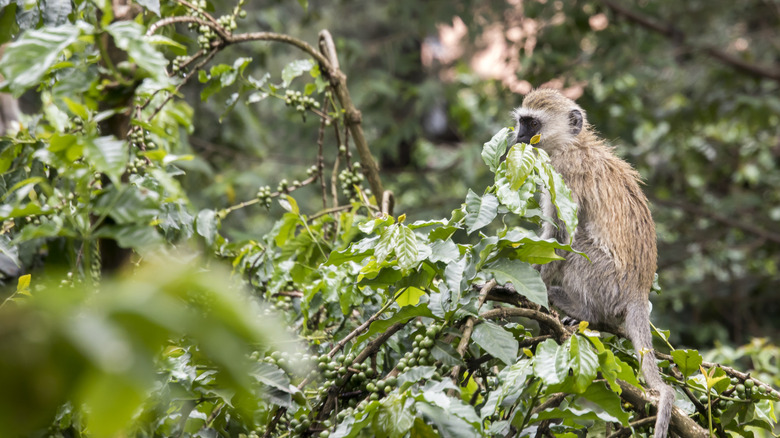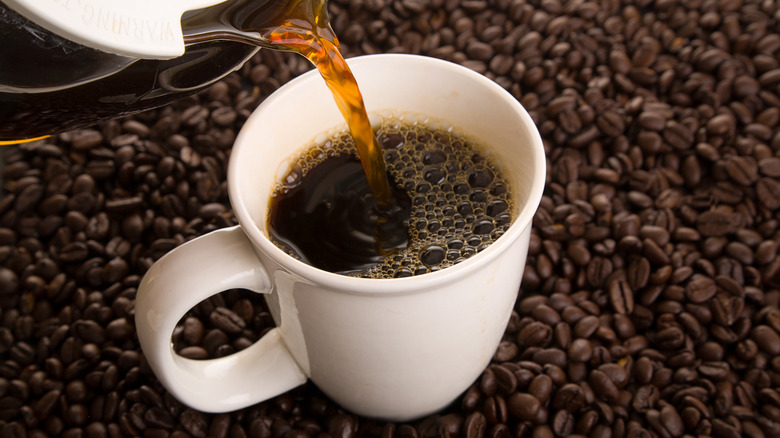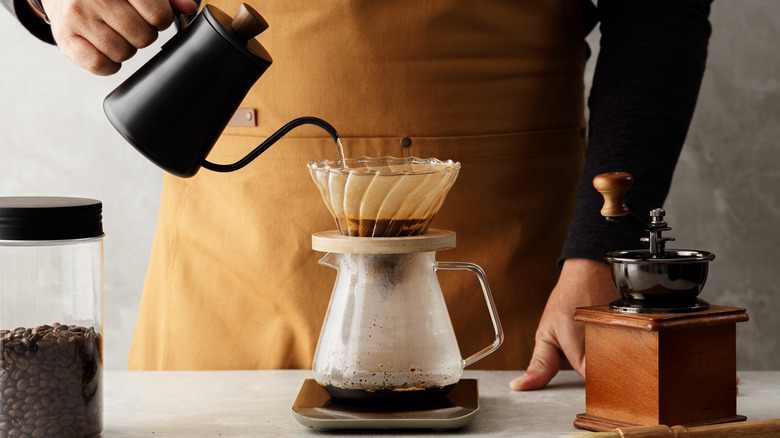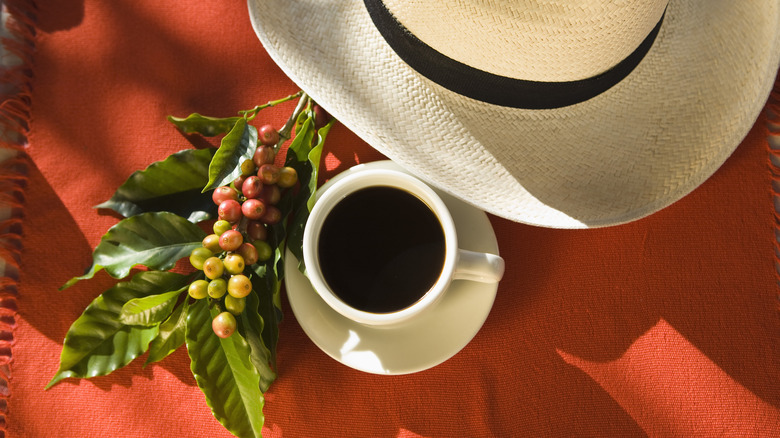What Is Monkey Coffee And Why Is It So Rare?
For many, coffee is an ordinary part of a morning routine. Yet, it's easy, and perhaps a shame, that we get in a rut with our beans because the beverage encompasses a staggering variety. Up to a hundred species of the plant exist, with production occurring in 70 countries. Out of all the variations, there's nothing quite like monkey coffee. As opposed to other animal coffees – which typically use beans that have been processed in the digestive tract, this bean is merely chewed on.
The phenomenon takes place when monkeys seek out ripe coffee cherries, bite into the fruit, and then discard the seed. The animals' selection of fruit, combined with an enzyme in their saliva, creates an especially flavorful cup. Innovated by farmers in India and Taiwan, the practice started as a sustainable method of using coffee gone to waste. However, now, it's turned into one of the world's most coveted brews. So let's unpack what this rare bean is all about.
What is monkey coffee?
Monkey coffee refers to a unique production process rather than a type of bean. It takes place in coffee farms interspersed with a dense foliage that's inhabited by monkeys. Coffee harvest season is dictated by when the animals are snacking on the ripest and sweetest cherry fruits. Once they've gnawed away the cherry flesh, they leave behind the beans, and farm workers carefully collect them. While the production involves various stages of processing, the monkeys actually eliminate one of the most difficult, which is baring the seed, turning out what's known in the industry as a washed bean.
The monkeys favor the best-tasting bean fruits, which correlates with a better-tasting cup of joe. Their chewing also slightly alters the makeup of the bean, both through physical defects, as well as interaction with enzymes in their saliva. The resulting beans have a unique grey color, whereas most coffee is green prior to roasting.
Such factors all contribute to a delicious-tasting coffee with exceptional sweetness and complexity. Exact flavor profiles vary between the producer since the monkeys snack on various species of beans. However, common notes include citrus, vanilla, and cocoa. The coffee's flavor is accentuated by a heavy body, and balanced acidity.
How to brew monkey coffee
With its limited and arduous production, monkey coffee is a specialty item that sells for steep prices — up to $300 a pound —so you don't want to give it the routine treatment. To highlight the coffee's floral character, turn to a delicate brewing method, like a pour-over using a V60. The vessel is utilized for many cups at top coffee competitions, and it delivers a clean, light brew that will highlight the nuances of monkey coffee's flavor. Make sure to consult the purveyor for factors like grind size, water temperature, and the ratio of grounds to water before brewing since these depend on the roast and type of bean sourced.
An Aeropress would also be well-suited to this variety; the result of the method is a coffee with more body, which will showcase monkey coffee's unique mouthfeel. Of course, the method depends on personal preference — experiment with both if you're fortunate enough to procure a bag.
Why is monkey coffee rare?
Monkey coffee is not a well-established production method, only about 20 years old, and it takes place in just a few places in the world — in the Chikmagalur region of India as well as Taiwan. And, though, like most coffees its harvest is seasonal, production is complicated by the monkey's unpredictable behavior. Factor in a labor-intensive mode of collection — which can only be conducted manually — and the coffee's scarcity is understandable. In fact, most producers only export a yield of around a hundred pounds a year.
Because it's a high-cost item, verify that it's coming from a trusted producer before purchasing a batch. The coveted civet cat coffee is commonly faked, and because monkey coffee is not as established as this type, it can be easier to pass off as the real thing. But once you've got your hands on the real deal, enjoy, as coffee's delectable flavor truly stands out.



